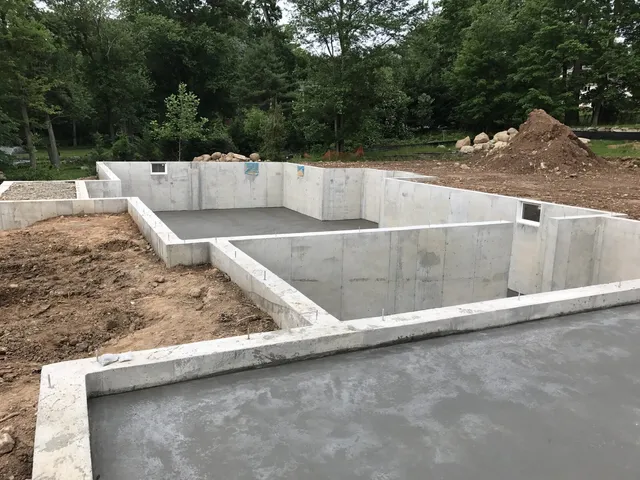POINT 1
Foundation Integrity: The Bedrock of Your Home’s Stability
A Deep Dive into the Importance of a Solid Foundation and How to Assess It
Your home’s foundation is essentially what keeps everything upright and stable. Without a strong foundation, even the most beautifully designed houses are subject to significant issues that can cost a fortune down the line. Assessing the foundation’s integrity is crucial when considering a home remodel or even when looking to buy or sell a home. Issues like cracks, leaks, and uneven settling can have serious structural repercussions, so it’s essential to know what to look out for and how to address any problems that may arise.
Foundation Integrity: The Silent Guardian of Your Home’s Structural Health
The foundation of your home may be out of sight, but it should never be out of mind. This critical component serves as the underpinning for your entire property, impacting its stability, safety, and long-term viability. When you’re considering a remodel, home purchase, or sale, a thorough evaluation of the foundation’s integrity is essential. But what exactly should you be looking for?
Types of Foundations
Understanding your type of foundation is the first step. There are three primary types: slab, crawl space, and full basement. Each has its own sets of advantages and disadvantages, and certain issues are more prevalent in one type than the others. For instance, a slab foundation might suffer from slab leaks, while basements are susceptible to flooding and water damage.
Cracks and Fractures
Cracks in the foundation are a telltale sign that something’s amiss. These can range from hairline cracks, which are generally less concerning, to larger, more noticeable fractures. While some cracking is normal due to settling, significant cracks could point to severe structural issues that require immediate attention.
Water Damage and Leaks
Water damage can seriously compromise the integrity of your foundation. If you notice pooling water, damp spots, or mold around the foundation, it’s crucial to investigate the cause. It could be poor drainage, plumbing leaks, or even an issue with the foundation material itself. Water damage can lead to erosion and eventual failure of the foundation if not addressed.
Settling and Shifting
Over time, it’s natural for a home to settle. However, uneven settling can result in a host of problems, including cracks in walls, uneven floors, and doors and windows that don’t shut properly. This is often caused by soil issues, like expansion and contraction due to moisture levels or poor compaction when the home was built. If you notice signs of uneven settling, a foundation specialist should be consulted.
Building Codes and Safety
Much like the roof, your foundation must adhere to local building codes for safety and compliance. Older homes may not meet current regulations, which can become an issue during a remodel or sale. Non-compliance can result in fines and could necessitate expensive foundation repair or replacement.
Conclusion
Understanding your home’s foundation is a complex but critical aspect of homeownership. While some issues may seem minor, they can lead to significant, expensive problems down the road if not addressed. Therefore, a thorough evaluation of foundation integrity should always be part of any home remodel or property assessment. It’s the only way to ensure that the bedrock of your home is as solid as it needs to be for the long haul.



